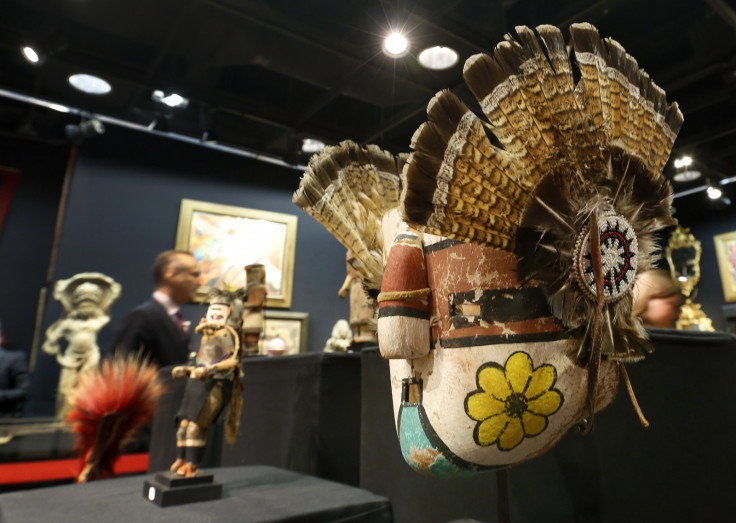Native Americans unsuccessful in attempt to halt auction of masks in Paris

A collection of Native American masks has been auctioned in Paris, despite protests from a tribe of Hopi Indians who say they are sacred and their sale ilegal.
The Hopi, who live on the Colorado Plateau desert in Colorado, say the masks represent the spirits of ancestors, and natural forces such as animals, plants, and elements, their export from the US was illegal and their sale is against US federal laws.
"Hopi Indians are totally opposed to the trade of these objects and for these objects to be shown, (their images) published and scattered," said Jean-Patrick Razon, head of Survival International, which defends cultural heritage.
"According to them, they are not marketable items, they are what they call 'friends', 'spiritual friends', which have to return to their homeland," he told Reuters.
Hopi cultural leader Sam Tenakhongva travelled to Paris in an attempt to halt the sale of seven masks and statues dating from the early 20th century by the Drouot-Richelieu auction house.
One Hopi mask sold for €11,000 (£7,900; $12,390) and a rare statue for €75,000.
On Wednesday, a sale of masks and statues by the Ancoma and Hopi tribes by the auction house raised more than €400,000 (£290,000; $450,000).
Native American tribes, with the backing of the US Embassy in Paris, have unsuccessfully tried four times to halt the auction of Native American artefacts in France since 2013.
© Copyright IBTimes 2024. All rights reserved.






